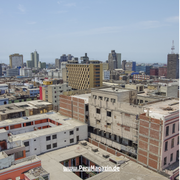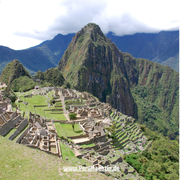José Francisco de San Martín y Matorras was an important 19th-century Argentine general and statesman who played a crucial role in the independence of several South American countries from Spanish rule, including Peru. He is revered in Peru as a national hero and liberator and is an important figure in the history of South America.
Live and act
José de San Martín was born on February 25, 1778 in Yapeyú, in what is now Argentina. He was the son of Spanish parents and joined the Spanish army at an early age. However, during his military career he developed strong nationalist beliefs and supported the independence movements in South America.
San Martín played a key role in the liberation of Argentina, Chile and Peru from Spanish colonial rule. His most famous military action was the crossing of the Andes in 1817, which led to his troops liberating Chile from the royalists. He then organized the troops that occupied Lima, the capital of Peru, in 1821 and proclaimed the country's independence.
After the liberation of Peru, San Martín withdrew from active politics and went into exile in Europe to avoid political unrest in Peru. He spent the rest of his life in exile in France and died in Boulogne-sur-Mer on August 17, 1850.

Contribution to Peru's independence
José de San Martín is revered in Peru as one of the fathers of independence and a national hero. His strategic and military skills were instrumental in liberating Peru from Spanish rule. He founded the Army of the Andes (Ejército de los Andes) and successfully led them through the Andes to defeat Spanish troops and win independence.
San Martín also worked closely with other independence leaders, including Simón Bolívar, to coordinate independence movements in South America. Although he later retired from politics, he left a lasting legacy as a liberator and visionary who helped shape modern Peru.

Heritage and veneration
In Peru, José de San Martín is seen as one of the country's most important liberators. His commitment to independence and his strategic skills made him a prominent figure in Peruvian history. Many monuments, streets and squares in Peru are dedicated to him, including the historic San Martín Square in Lima.
San Martín is also hero-worshipped in other Latin American countries, particularly Argentina and Chile. His role in the liberation of several countries from Spanish colonial rule and his quest for freedom and independence have made him a timeless figure in South America's collective memory.





